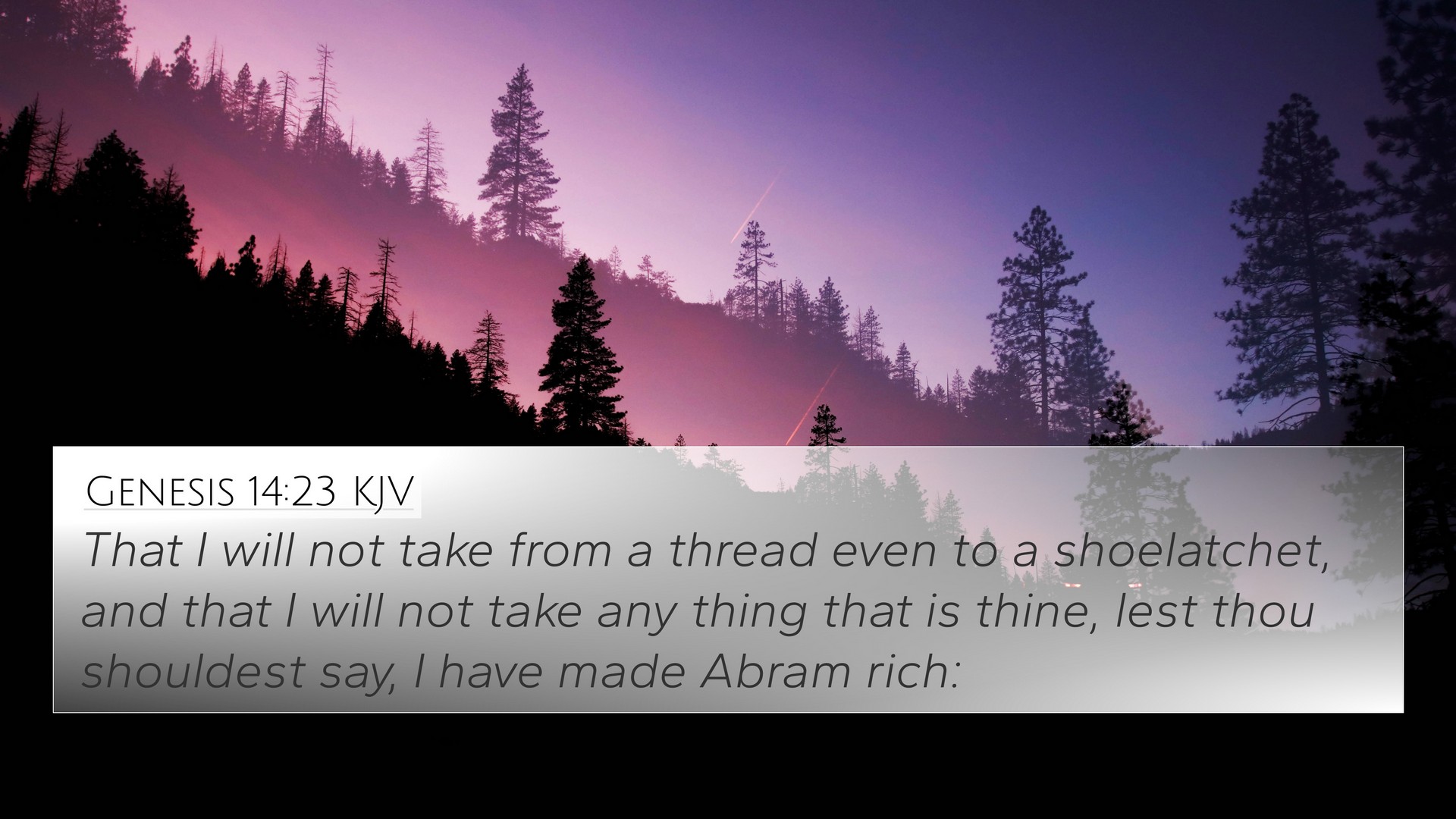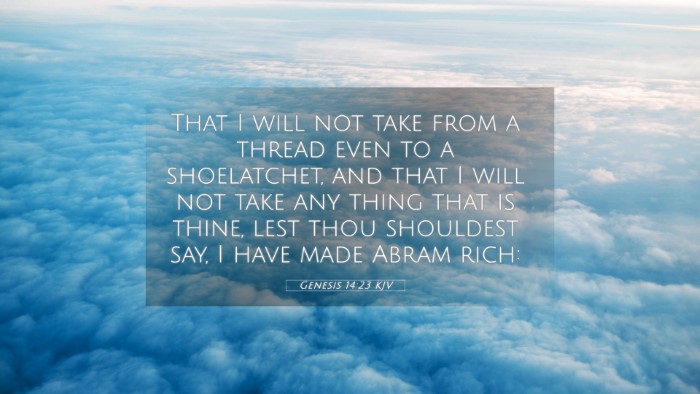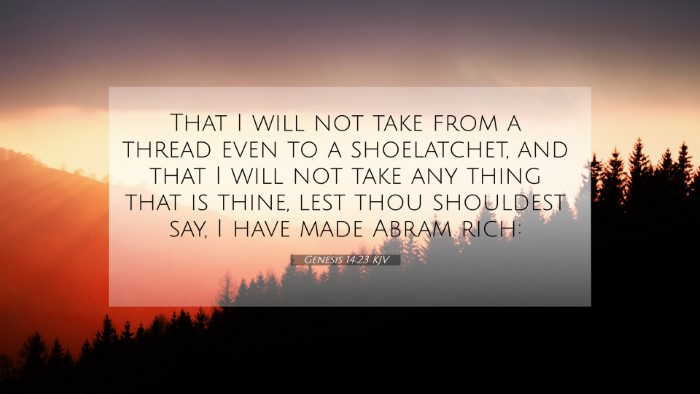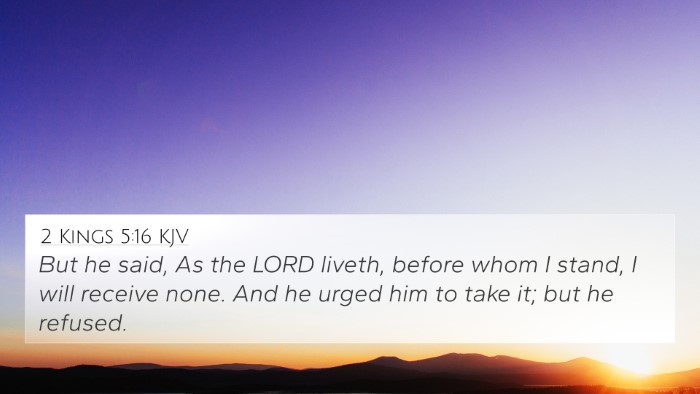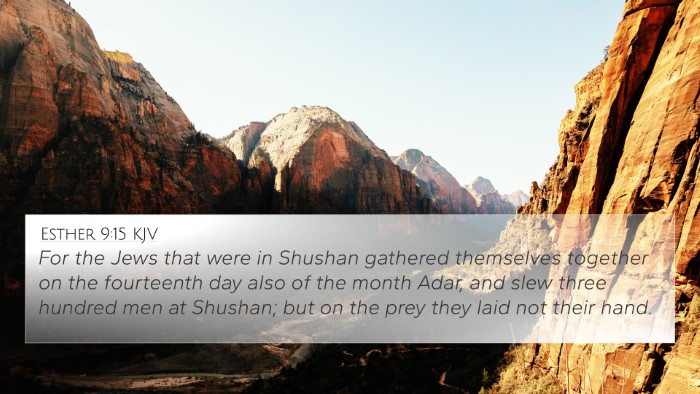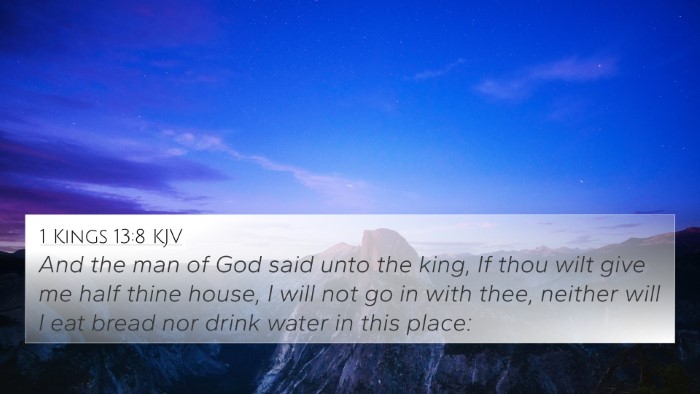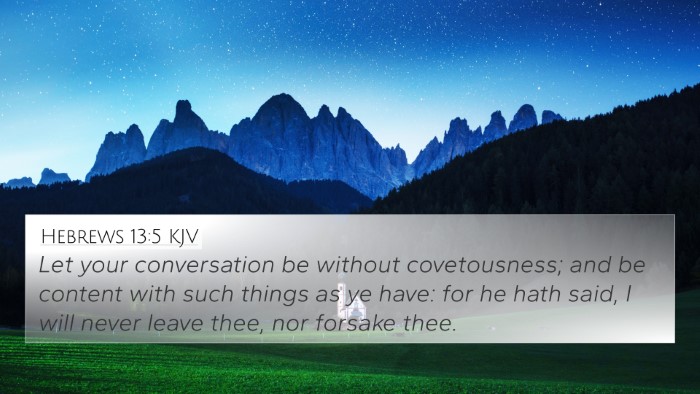Understanding Genesis 14:23
Genesis 14:23 states, "That I will not take from a thread even to a shoelatchet, and that I will not take anything that is thine, lest thou shouldest say, I have made Abram rich." This verse reflects the decision made by Abram (Abraham) not to accept gifts or wealth from the King of Sodom after a great military victory.
Contextual Background
The setting of this verse is pivotal; it occurs immediately after Abram’s successful rescue of Lot and the defeat of certain kings. When Abram returned, the King of Sodom offered him riches as a token of gratitude, but Abram declined. This passage is significant within the narrative of Abram's life as it highlights his integrity and reliance on God rather than earthly wealth.
Commentary Insights
- Matthew Henry: Emphasizes that Abram's refusal illustrates a profound moral and spiritual lesson about dependence on God. By not taking the king's wealth, Abram demonstrates his faith that God would provide for his needs rather than relying on human sources.
- Albert Barnes: Points out that this decision is rooted in Abram's desire to avoid any implications that he owes his wealth to anyone else but God. Barnes notes that Abram was keenly aware of the potential for pride and the desire for recognition from men.
- Adam Clarke: Notes that Abram's action can be seen as a prophetic stance that Christians should also adopt. He connects this refusal with broader themes of humility and the spiritual dangers of greed and avarice.
Thematic Connections and Cross-References
Genesis 14:23 connects thematically to several other Biblical texts that enhance its meaning:
- Matthew 6:19-21: "Lay not up for yourselves treasures upon earth..." - This verse parallels Abram's choice to forego material riches for eternal values.
- 1 Timothy 6:9-10: "But they that will be rich fall into temptation..." - This cautions against the love of money, echoing Abram's desire to remain untainted by worldly wealth.
- Hebrews 11:8-10: "By faith Abraham... looked for a city which hath foundations..." - This emphasizes Abraham's faith and hope in God's promises rather than earthly possessions.
- Proverbs 30:8-9: "Give me neither poverty nor riches..." - This reflects a similar plea for balance and dependence on God for sustenance.
- Philippians 4:11-12: "I have learned... to be content in whatever state I am..." - This illustrates the Pauline perspective on contentment, akin to Abram's refusal to acquire wealth.
- James 4:3: "Ye ask, and receive not, because ye ask amiss..." - This echoes the theme that intentions behind requests for wealth matter deeply to God.
- Acts 3:6: "Silver and gold have I none; but such as I have give I thee..." - Represents the principle of spiritual wealth over material gain.
Lessons for Today
From Genesis 14:23, we learn several vital lessons applicable to our lives:
- Integrity: The importance of maintaining integrity in our dealings.
- Faith in God: Relying on God's provision rather than the riches of this world.
- Contentment: The spiritual richness that comes with living a life untainted by materialism.
Tools for Cross-Referencing Biblical Texts
Utilizing cross-references can deepen one's understanding of scripture. Below are some tools and methods useful for exploring these connections:
- Use a Bible concordance to locate related verses and themes.
- Bible cross-reference guide offers systematic approaches for study.
- Online cross-reference Bible study tools enable quick access to related scriptures.
- Engage in cross-referencing Bible study methods for group discussions.
Conclusion
Genesis 14:23 serves as a poignant reminder of the heart's posture towards wealth and the significance of recognizing God as the ultimate source of provision. By examining related verses, we can forge connections that enrich our understanding of biblical principles regarding wealth and integrity.
